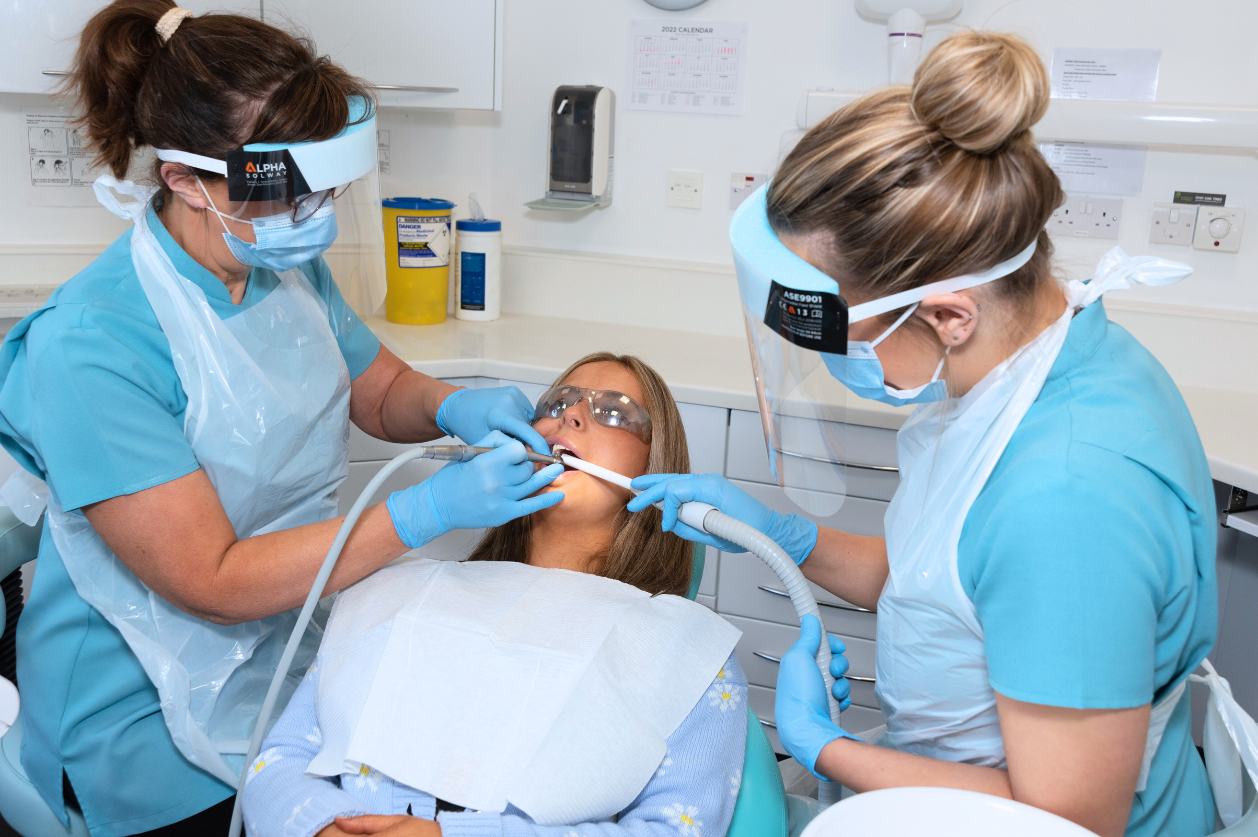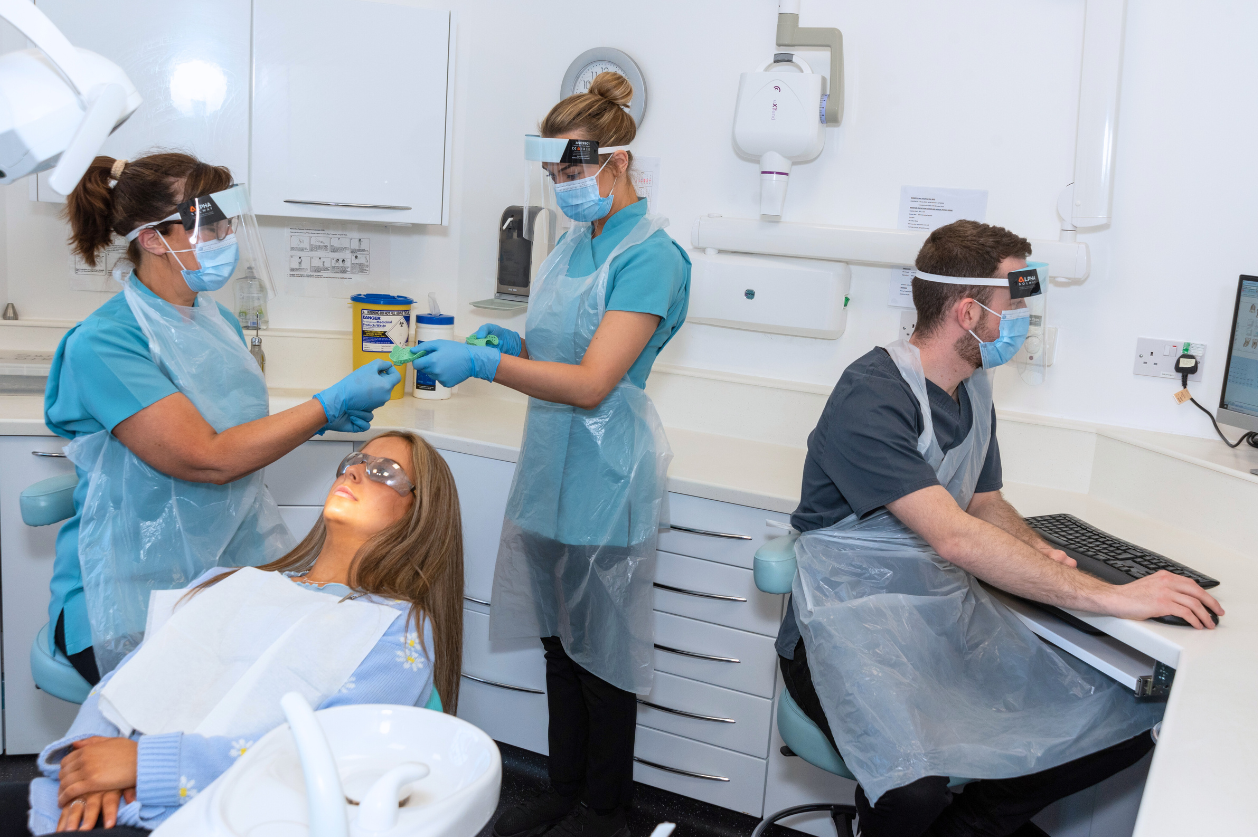Previous
Dental
To become a dental nurse, you'll need to complete a pre-registration training programme. You must then register with the General Dental Council (GDC).
Dental nurses contribute to the safe and effective care of patients by providing support to other members of the dental team.
They promote and maintain health and safety in the workplace and make sure there is a high standard of infection control.
Dental nurses are essential in delivering high-quality patient care. They work in all areas of dentistry, including general dental practice, dental hospitals, public dental services, and within the armed forces.

To become a dental nurse, useful subjects may include:
Speak to your guidance teacher about subjects offered at your school.
There are different education and training pathways to becoming a dental nurse.
To practise safely in the UK, all dental professionals must have the necessary knowledge of English.
The GDC standards state that dental professionals must “be sufficiently fluent in written and spoken English to communicate effectively with patients, their relatives, the dental team, and other healthcare professionals in the United Kingdom.” Effective communication skills include:
Find out more about the GDC English language requirements for dental professionals.
Training will begin on your first day as a trainee dental nurse. In Scotland, NHS Education for Scotland (NES) offers a Dental Nurse Induction learning programme. It has 4 modules that you’ll study at your own pace, with the support of workplace colleagues.
In each module, you’ll carry out research and investigations by reviewing websites and engaging in discussions with colleagues.
The Dental Nurse Induction learning programme will provide you with a clear understanding of your role and responsibilities as a dental nurse. This means you can work safely while waiting to start a pre-registration training programme.
Find out more about the Dental Nurse Induction learning programme.
Dental nurses must either be registered or in training. This means that you’ll be one of the following:
As a trainee dental nurse, you must complete a recognised training programme that leads to registration with the GDC. Training providers can advise on specific programme entry requirements.
Search My World of Work for pre-registration dental nursing training programmes.
Some trainee dental nurses start their careers as Modern Apprentices.
NHS Education for Scotland provides an overview of the Modern Apprenticeship in Dental Nursing.
With a Modern Apprenticeship, you'll get the training and experience you need to become a dental nurse and the following professionally recognised qualifications:
You’ll also evidence the 5 SQA Core Skills at SCQF level 5.
When you complete the SVQ and PDA in Dental Nursing qualifications, you’ll be ready to register with the GDC.
Find out more about the Modern Apprenticeship in Dental Nursing.
As a dental nurse, you'll assist dentists, dental therapists, orthodontic therapists, and hygienists to provide a range of dental treatments to patients. You may also assist with reception work by greeting patients when they arrive and booking new appointments.
Some patients may be anxious or nervous about their appointment. You'll help put them at ease and make them feel comfortable.
Tasks include:
You'll need these skills:
Dental nurses work with other dental care professionals, including:
You could work in:
As a dental nurse, you would be expected to undertake continuing professional development (CPD). The purpose of CPD is to maintain your skills, knowledge, competence, and registration with the GDC.
Find out more about CPD for dental professionals.
With experience and additional training, you could develop your knowledge and skills to extend your role within the professional scope, including:
With experience, further training, and gaining appropriate qualifications, you could change your career path or registrant group. For example, you could become an orthodontic therapist, dental hygienist, or dental therapist.

When you become a qualified dental nurse, you must register with the General Dental Council (GDC).
You can also join the following organisations:

Discover the skills and qualifications you’ll need for each role and what the work will be like.
Explore careers
Our blog includes how-to guides, case studies, and career resources.
Discover more